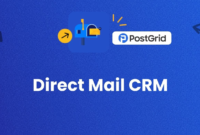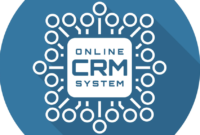CRM Customer Management System: Enhancing Customer Relationships and Business Efficiency
Introduction
In today’s fast-paced and highly competitive business environment, building and maintaining strong customer relationships is paramount for success. To effectively manage these relationships, businesses are turning to Customer Relationship Management (CRM) systems. A CRM customer management system is a powerful tool that helps businesses manage and improve their interactions with customers, streamline processes, and enhance overall efficiency.
This article will explore what a CRM customer management system is, its benefits, key features, and how it can revolutionize your approach to managing customer relationships and improving business outcomes.
What is a CRM Customer Management System?
A CRM customer management system is a software solution designed to help businesses track and manage their interactions with customers, leads, and prospects. It centralizes all customer information in one place, allowing businesses to store data, track communication, manage sales processes, and automate key functions. Whether you’re a small business or a large enterprise, a CRM system provides a structured approach to managing customer data, enhancing service, and driving growth.
Key functions of a CRM customer management system include:
- Customer Data Storage: Centralized storage of customer details, purchase history, and communication records.
- Lead Management: Tracking and managing leads through the sales pipeline.
- Sales Automation: Automating tasks such as follow-ups, emails, and reminders.
- Customer Service: Streamlining support requests and improving response times.
- Analytics and Reporting: Generating insights from customer data to guide decision-making.
By centralizing customer data, CRMs make it easier for businesses to enhance the customer experience, identify sales opportunities, and improve operational efficiency.
Benefits of Using a CRM Customer Management System
1. Improved Customer Relationships
A CRM system allows businesses to gain a deeper understanding of their customers by consolidating all interactions and information in one place. With this centralized data, businesses can provide more personalized and tailored experiences. Sales teams can access previous interactions, track customer preferences, and resolve issues more efficiently, leading to stronger and more lasting relationships.
2. Increased Sales and Revenue
By providing sales teams with detailed customer profiles and sales history, a CRM system helps identify new sales opportunities and nurture existing relationships. With automated features like follow-up reminders and task assignments, the sales team can focus on high-priority leads and increase conversion rates. Additionally, the system provides insights into sales trends and customer behavior, enabling businesses to optimize their strategies for maximum revenue growth.
3. Enhanced Communication and Collaboration
A CRM customer management system facilitates better communication across teams and departments. Customer service teams, sales teams, and marketing departments can access a single source of truth, ensuring consistency in communication. For example, if a customer calls for support, the service team can quickly pull up their profile, view their past purchases, and address their needs without delays. This enhanced communication fosters collaboration and ensures a seamless customer experience.
4. Automation of Routine Tasks
Routine tasks, such as sending follow-up emails, assigning tasks, or scheduling appointments, can be time-consuming if done manually. A CRM system automates many of these tasks, allowing businesses to streamline operations and reduce human error. This automation frees up employees to focus on more strategic tasks that drive business growth, like building relationships and closing deals.
5. Better Customer Service and Support
CRM systems enable businesses to provide better customer service by offering tools that streamline the handling of support requests. With features like ticketing, case management, and knowledge bases, businesses can quickly address customer concerns, track progress, and resolve issues more effectively. A CRM helps ensure that no customer request goes unnoticed, leading to higher satisfaction levels and stronger customer loyalty.
6. Data-Driven Insights and Reporting
An important advantage of CRM customer management systems is their ability to provide valuable insights through reporting and analytics. By analyzing customer behavior, sales performance, and other metrics, businesses can make data-driven decisions to improve operations. These insights help identify trends, measure campaign success, and pinpoint areas for improvement. Moreover, with customizable dashboards, businesses can monitor key performance indicators (KPIs) in real-time.
Key Features of a CRM Customer Management System
1. Centralized Customer Database
At the heart of any CRM is a centralized customer database. This database stores key customer information, such as contact details, communication history, purchase records, and preferences. By consolidating all this data, a CRM ensures that all team members have access to the most up-to-date and accurate customer information, which is crucial for providing personalized service.
2. Lead and Opportunity Management
Managing leads and opportunities effectively is essential to driving sales. A CRM system allows businesses to track leads through each stage of the sales funnel, from initial contact to final sale. Sales teams can assign tasks, set reminders, and automate follow-ups to ensure that no lead is neglected. By providing visibility into the sales pipeline, CRMs help businesses prioritize high-value leads and close deals faster.
3. Sales and Marketing Automation
Sales and marketing automation tools in CRM systems help streamline processes by automating repetitive tasks. These tools can include email campaigns, social media posting, lead nurturing, and follow-up reminders. By automating these functions, businesses can reduce manual work, increase efficiency, and ensure timely interactions with customers and prospects.
4. Customer Support Management
CRM systems typically offer features for managing customer service interactions, such as ticketing systems and case management. When a customer submits a support request, the CRM automatically generates a ticket and assigns it to the appropriate team member. Support teams can track the status of requests, follow up with customers, and ensure that all issues are resolved promptly, improving the overall customer experience.
5. Reporting and Analytics
CRM systems are equipped with reporting and analytics tools that generate insights from customer data. These reports can track metrics such as sales performance, lead conversion rates, and customer satisfaction levels. Businesses can use these insights to adjust strategies, improve customer engagement, and measure the effectiveness of campaigns. Customizable dashboards allow teams to monitor KPIs in real time and make informed decisions.
6. Mobile Access
In today’s mobile-first world, it’s essential that sales and service teams have access to CRM data on the go. Many CRM systems offer mobile apps, allowing team members to access customer information, update records, and manage tasks from their smartphones or tablets. This feature is especially beneficial for field sales teams or remote workers who need real-time access to customer data while on the move.
How a CRM Customer Management System Helps Specific Industries
1. For Retailers
Retail businesses can benefit from CRM systems by gaining deeper insights into customer behavior, preferences, and purchasing history. With this information, retailers can offer personalized promotions, loyalty programs, and product recommendations, which enhance customer satisfaction and drive sales.
2. For Service Providers
Service-based businesses, such as healthcare providers, law firms, and consulting firms, can use CRM systems to manage client appointments, track case histories, and schedule follow-up reminders. The system helps streamline client communications, ensuring a more organized and efficient service delivery.
3. For Real Estate Agents
Real estate professionals use CRM systems to track leads, manage property listings, and schedule viewings. The CRM provides agents with insights into client preferences, helping them make better property recommendations and close deals faster. The system also helps agents keep track of contracts, appointments, and follow-ups.
4. For Financial Advisors
Financial advisors can use CRM systems to manage client portfolios, track investments, and schedule meetings. The system helps advisors provide personalized advice by storing detailed financial histories and offering insights into customer goals and preferences.
Popular CRM Customer Management Systems
1. Salesforce CRM
- Key Features:
- Comprehensive customer data management.
- Sales and opportunity tracking.
- Marketing and customer support automation.
- Advanced analytics and reporting.
- Why It’s Great: Salesforce is one of the most widely used CRM platforms, known for its scalability and robust features. It is ideal for businesses of all sizes and offers extensive customization options.
- Limitations: Salesforce can be expensive for small businesses, and its complexity may require training for new users.
2. HubSpot CRM
- Key Features:
- Free plan with essential CRM features.
- Lead and contact management.
- Sales pipeline and task automation.
- Email tracking and analytics.
- Why It’s Great: HubSpot CRM is a user-friendly solution that’s ideal for small to medium-sized businesses. It offers a free tier with essential features, and its integration with HubSpot’s marketing tools makes it a powerful choice for businesses looking to scale.
- Limitations: Some advanced features, such as marketing automation, are only available in paid plans.
3. Zoho CRM
- Key Features:
- Lead and sales management.
- Workflow automation and task assignments.
- Multi-channel communication tools.
- Reporting and analytics.
- Why It’s Great: Zoho CRM is an affordable and feature-rich CRM system. It offers a wide range of integrations, making it an excellent choice for businesses that need a customizable solution.
- Limitations: The interface can be overwhelming for beginners, and some features are only available in higher-tier plans.
Conclusion
A CRM customer management system is a vital tool for businesses looking to improve their customer relationships, enhance sales, and streamline operations. With features such as centralized customer data, sales automation, customer support management, and robust reporting, CRMs offer a comprehensive solution for businesses of all sizes. By choosing the right CRM system for your organization, you can enhance productivity, improve customer satisfaction, and drive long-term business success.




